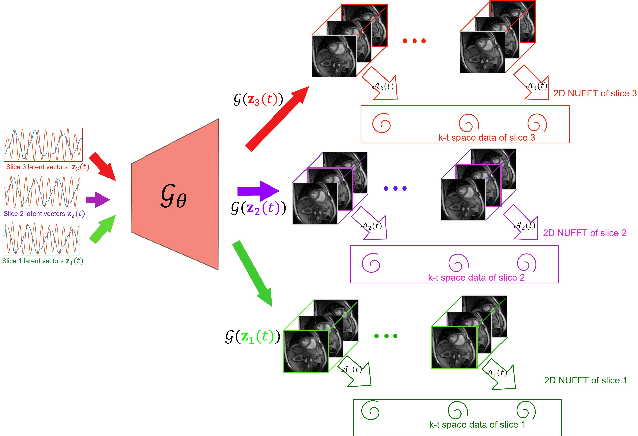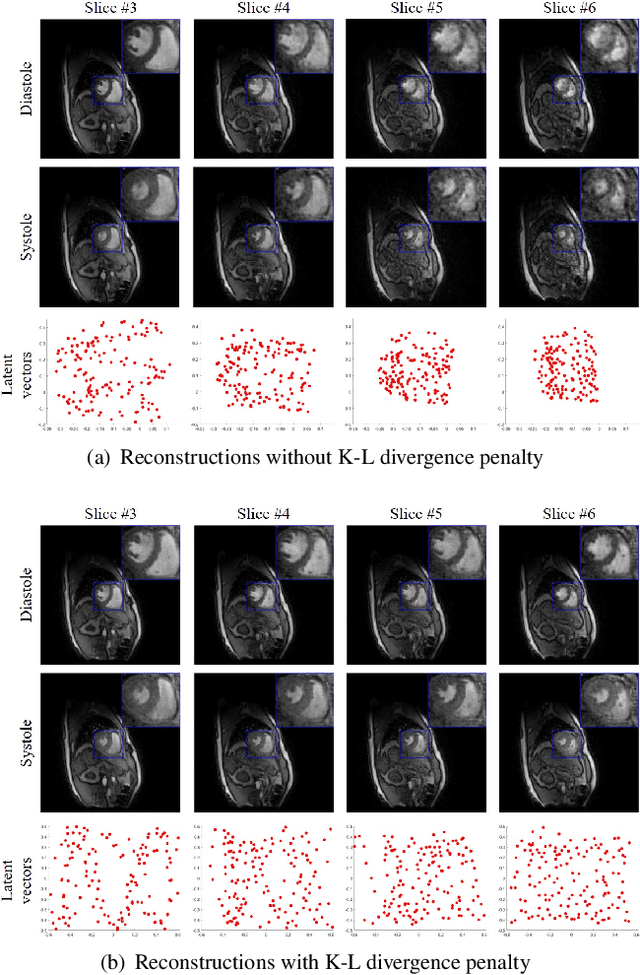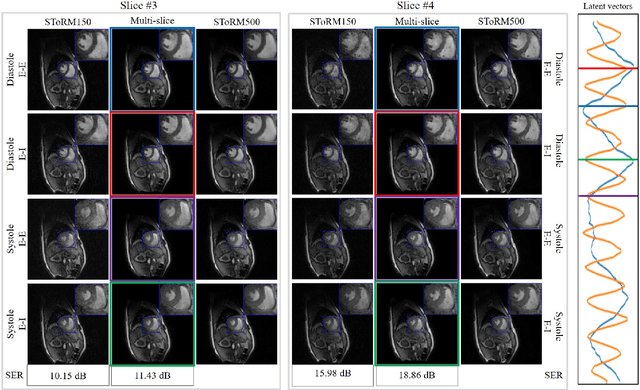Alignment & joint recovery of multi-slice dynamic MRI using deep generative manifold model
Paper and Code
Jan 20, 2021


We introduce a novel unsupervised deep generative manifold model for the recovery of multi-slice free-breathing and ungated cardiac MRI from highly undersampled measurements. The proposed scheme represents the multi-slice volume at each time point as the output of a deep convolutional neural network (CNN) generator, which is driven by latent vectors that capture the cardiac and respiratory phase at the specific time point. The main difference between the proposed method and the traditional CNN approaches is that the proposed scheme learns the network parameters from only the highly undersampled data rather than the extensive fully-sampled training data. We also learn the latent codes from the undersampled data using the stochastic gradient descent. Regularizations on the network and the latent codes are introduced to encourage the learning of smooth image manifold and the latent codes for each slice have the same distribution. The main benefits of the proposed scheme are (a) the ability to align multi-slice data and capitalize on the redundancy between the slices; (b) the ability to estimate the gating information directly from the k-t space data; and (c) the unsupervised learning strategy that eliminates the need for extensive training data.
 Add to Chrome
Add to Chrome Add to Firefox
Add to Firefox Add to Edge
Add to Edge